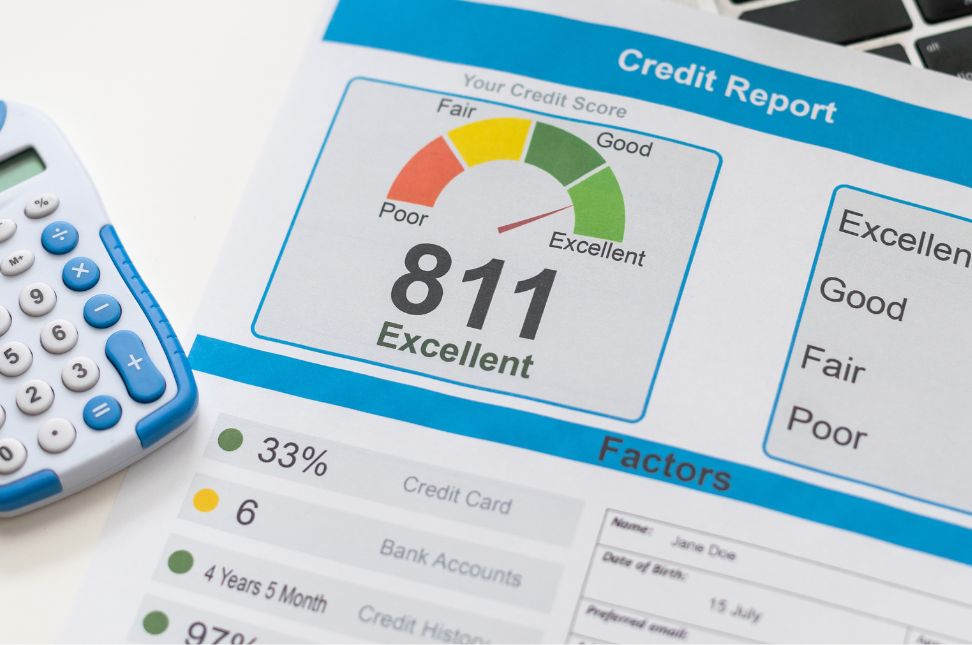A good credit score is essential for financial health. It affects your ability to get loans, credit cards, and even influences job prospects and housing options. This article outlines effective strategies to improve credit score and maintain it, providing you with the financial stability you need.
Understanding Credit Scores
Before diving into how to improve your credit score, it’s important to understand what a credit score is and how it’s calculated. Credit scores typically range from 300 to 850 and are determined by several factors:
- Payment History (35%): Timely payments on credit accounts.
- Amounts Owed (30%): Total debt owed compared to available credit.
- Length of Credit History (15%): How long your credit accounts have been open.
- Credit Mix (10%): Variety of credit accounts like credit cards, mortgages, and loans.
- New Credit (10%): Recent credit inquiries and newly opened accounts.
Strategies to Improve Credit Score
1. Pay Bills on Time
One of the most effective ways to improve credit score is to pay your bills on time. Late payments can significantly damage your credit score. Setting up automatic payments or reminders can help ensure you never miss a payment.
2. Reduce Credit Card Balances
Keeping your credit card balances low can help improve credit score. Aim to use less than 30% of your available credit. This ratio, known as credit utilization, is a critical factor in your credit score.
3. Check Your Credit Report Regularly
Regularly reviewing your credit report helps identify errors or fraudulent activities that could harm your credit score. You are entitled to a free credit report from each of the three major credit bureaus (Experian, Equifax, and TransUnion) annually. Dispute any inaccuracies you find to ensure your credit score reflects your true financial behavior.

4. Avoid Opening New Credit Accounts Frequently
Each time you apply for credit, a hard inquiry is made, which can temporarily lower your credit score. To improve credit score, avoid opening new credit accounts frequently. Instead, focus on managing existing credit responsibly.
5. Keep Old Accounts Open
The length of your credit history impacts your credit score. Even if you no longer use an old credit card, keeping it open can help lengthen your credit history, thereby helping to improve credit score. However, if the card has an annual fee, consider whether the benefit outweighs the cost.
6. Diversify Your Credit Mix
Having a mix of credit types, such as credit cards, mortgages, and auto loans, can positively impact your credit score. While you shouldn’t take on debt you don’t need, responsibly managing different types of credit can help improve credit score.
7. Manage Debt Wisely
Consistently reducing the amount of debt you owe can help improve credit score. Focus on paying down high-interest debts first, and consider consolidating debts to lower interest rates.
8. Use a Secured Credit Card
If you have a low credit score or no credit history, a secured credit card can be an excellent tool to improve credit score. A secured credit card requires a cash deposit, which serves as your credit limit. Using it responsibly and making timely payments can help build or rebuild your credit.
Avoid Common Credit Mistakes
To effectively improve credit score, it’s crucial to avoid common mistakes that can negatively impact your score:

- Maxing Out Credit Cards: High balances relative to your credit limit can harm your score.
- Making Only Minimum Payments: Paying only the minimum can lead to high balances and interest charges.
- Ignoring Bills: Late payments can severely damage your credit score.
- Closing Old Accounts: This can shorten your credit history and reduce your score.
The Role of Credit Counseling
If managing your credit feels overwhelming, consider seeking help from a credit counseling agency. Credit counselors can provide personalized advice and help you develop a plan to improve credit score. They can also assist with debt management plans, which consolidate your debts into a single monthly payment.
The Impact of Improving Your Credit Score
Improving your credit score can lead to numerous benefits, including:
- Lower Interest Rates: Higher credit scores qualify you for better interest rates on loans and credit cards.
- Better Loan Approvals: A good credit score increases your chances of loan approvals.
- Improved Insurance Rates: Some insurers use credit scores to determine premiums.
- Greater Financial Opportunities: A higher credit score can open doors to better financial products and services.
Conclusion
Working to improve credit score is a worthwhile effort that can provide significant financial benefits. By paying bills on time, reducing debt, maintaining a good credit mix, and regularly checking your credit report, you can steadily improve your credit score. Avoid common pitfalls and consider professional help if needed. With these strategies, you can build a strong credit history and enjoy the advantages that come with a high credit score.
By following these steps and remaining diligent, you can effectively improve credit score and secure your financial future.




